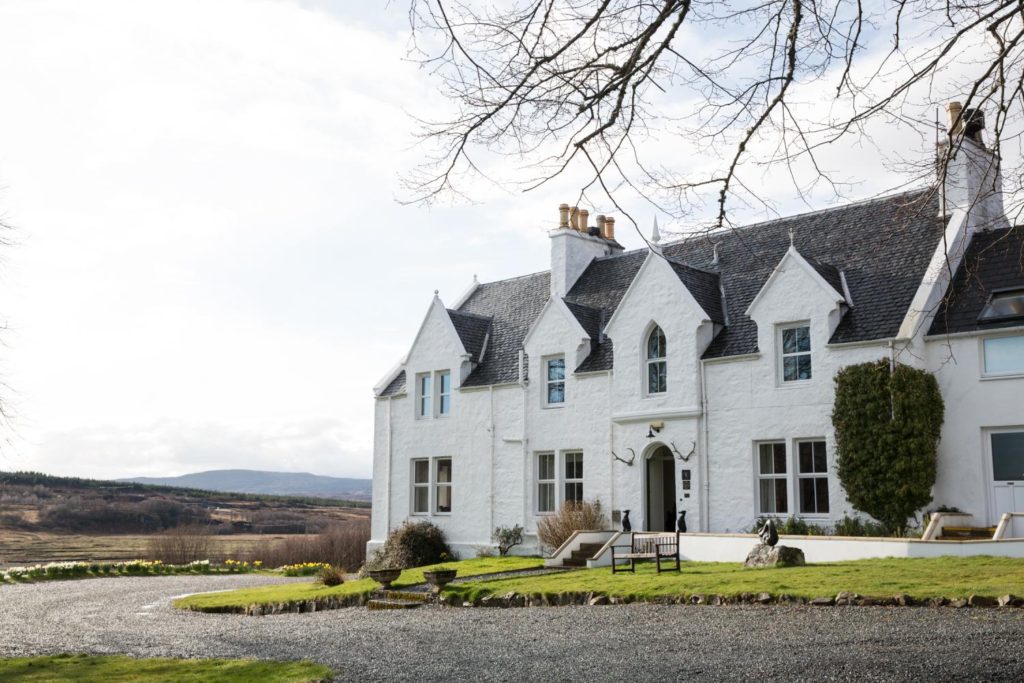After Fergus had come aboard, the Captain had followed up with all the necessary paperwork and procedures the governed the way a vessel could allow a shipwrecked passenger to embark. These paper forms had to be submitted to all the proper authorities, and they sat on his desk now, waiting to be faxed or mailed to their bureaucratic destinations. But there were some slots on these somewhat foreboding papers that he simply could not fully complete since the boy had no passport, no birth certificate; in fact, he had no identification whatsoever.
The Captain had made some discrete inquiries with his counterparts on land. He’d phoned the police in Scotland, but they were unable to match the name of Fergus MacDonell with any missing-persons reports. It was at this point, realizing he might set off unnecessary alarm bells, and cause a spotlight to be shone on the case, that the Captain decided to tell the Scottish police to put the matter to rest, and assured them that he would take the matter up with the local Norwegian authorities instead.
But the plain fact was he intended to do no such thing, at least, not yet because while he was waiting for a reply from the Scottish police, he’d done a little digging on the Internet.
The Captain, you see, had noticed a coat or arms–or was it a clan crest?– on the boy’s ship as they evacuated Fergus, but he was having trouble remembering what imagery was depicted on it. He’d also taken a good look at the boy’s kilt before it had been burned by the ship’s doctor, who was concerned about any germs or traces of foreign plants it might harbor between its threads. Unlike the coat of arms, the Captain had a clear picture of the tartan in his mind.

It was not difficult to find that this unique tartan was in fact linked to the clan name MacDonell, which matched what Fergus had said his surname was. This led the Captain to look up the family name, with the intent of placing the boy in the family. He started with the authority on heraldry for Scotland, Lord Lyon. There was not an easy way to search the database online without a fee, so he phoned them, but they were not in, and he left a message instead.
He did some more searches in Scottish databases that were available online, but could only find an Allan MacDonell born in 1895, not a Fergus. There was a Fergus MacDonell born in 1953 but of course, that made no sense, since the boy was clearly about 10 years old–he must have been born in 2006 or 2007.
The big question the Captain had avoided until now, however, was: had the boy traveled through time?
The Captain stood and mixed himself another tall glass of his favorite evening drink: iced sparkling water with lime, doused with coconut milk and a bit of sugar. After stirring it, just so, and with the exact amount of ice he insisted upon, in the just-right height glass, he stood on his balcony and watched the waves go by, and looked out into the rocky cliffs in the distance. He had heard stories, of course. There was all matter of sea-faring folktales, legends, that told tales of people moving through time, people even changing shape…but of course, those were just stories.
This morning, Dashiell’s parents, Mr. and Mrs. Weiss, had paid him a visit.
“We want to take him home. To America. With us,” they’d said. “We’ll return him to Scotland once he’s healthier, and we’ve found his family.”
Thus began a discussion about what exactly was to be done about poor Fergus. The parents were quite worried that the boy would be shipped home at the first opportunity, but, as the Captain explained, they hadn’t been able to ascertain where home was. Of course, Fergus had told them the name of his village, the name of his house, and the name of his cousin’s house on the Island of Skye. But the parents had already discovered on their own that the home Fergus had named was a just a hotel, and there were no MacDonells there.

Fergus’ Home
Dashiell’s parents were very concerned that Fergus could end up being put into foster care, or even a detention center, which would be like being in jail. The thought of him being shuffled around by all the governments involved (Norway, Scotland, and the United States), was terrifying to them.
Mrs. Weiss said, “If he is suffering from some kind of amnesia, he’ll recover better in the home of a loving family.”
Indeed, but even if all could agree to such a plan, how to get a country to allow Fergus to cross its borders?
The mother continued. “Fergus was lost at sea, he has no family. And Dashiell wants a brother more than anything in the world. It is the natural next step. Let’s look at Fergus as a…a…refugee.”
“Well I agree in a way,” said the Captain, “but, a refugee…from Scotland? That might be hard to prove, even with the large migrations of people in Europe right now, fleeing horrific wars. That’s almost an insult to the true refugees.”
“He could claim asylum…from Brexit!” shouted Mr. Weiss excitedly, and they all had a good laugh at this, since the United Kingdom had recently taken what may turn out to be a major world stage detour, separating themselves from Europe, and many believed this was disastrous. And in fact, a certain number of British citizens had emigrated elsewhere, in a way, fleeing their homes. But, they had paperwork. Passports. Visas.
“If we are to seek refugee status, there will be complications…lawyers. It will get all tied up in bureaucracy. Is that what you want?”
Dashiell’s mother and father looked at each other, their faces drooping now in the realization that this idea was pure fantasy; visions of the boys, happy together, clouding over.
That evening, the Captain found the moon too bright for sleeping, and his mind too busy, looking for solutions to help Fergus, and help his real parents, if indeed they existed, to be reunited with their son. He lay in bed, watching the dark forests slip by, listening to the deep hum of the ship’s engines, and thinking: when did the world become so complex? Finally, he fell into a fitful sleep and dreamed that a government official boarded the ship, wearing a coat of hard dust, almost clay, like a mold around his body. He insisted on removing Fergus from the Friendship. The Captain tried to stop the official from advancing, and in the process, knocked on his dusty muddy shoulder. The cast around his body shattered, and he disappeared.
That same evening, in the Weiss (nee Pierce) suite, the boys were relaxing after a full day. They were fed, bathed, and pajamaed. They both lie in their respective bunks beds, looking up at the glittering stars on the ceiling’s mural.
Fergus said, “This is a song my mother used to sing me. It’s about Bonnie Prince Charlie, who battled the English to try to free Scotland from its oppressive rule but had to flee when his troops were badly outnumbered. There are 2 versions of this song, but I think you’ll like the original best.”
He cleared his throat and began.
Speed bonny boat, like a bird on the wing,
‘Onward,’ the sailors cry,
Carry the lad that’s born to be king,
Over the sea to Skye.
Loud the winds howl, loud the waves roar,
Thunderclaps rend the air.
Baffled, our foes, stand by the shore
Follow, they will not dare.
Speed bonny boat, like a bird on the wing,
‘Onward,’ the sailors cry,
Carry the lad that’s born to be king,
Over the sea to Skye.
Many’s the lad, fought on that day,
Well the claymore did wield.
When the night came, silently lay,
Dead, on Culloden field.
Oh, Speed bonny boat, like a bird on the wing,
‘Onward,’ the sailors cry,
Carry the lad that’s born to be king…
Fergus did not get through the whole song–he was, after all, tired after staying up for 6 full hours. Dashiell also drifted off, imagining a great and valiant battle on the side of a hillside, the water nearby, a boat waiting there…
